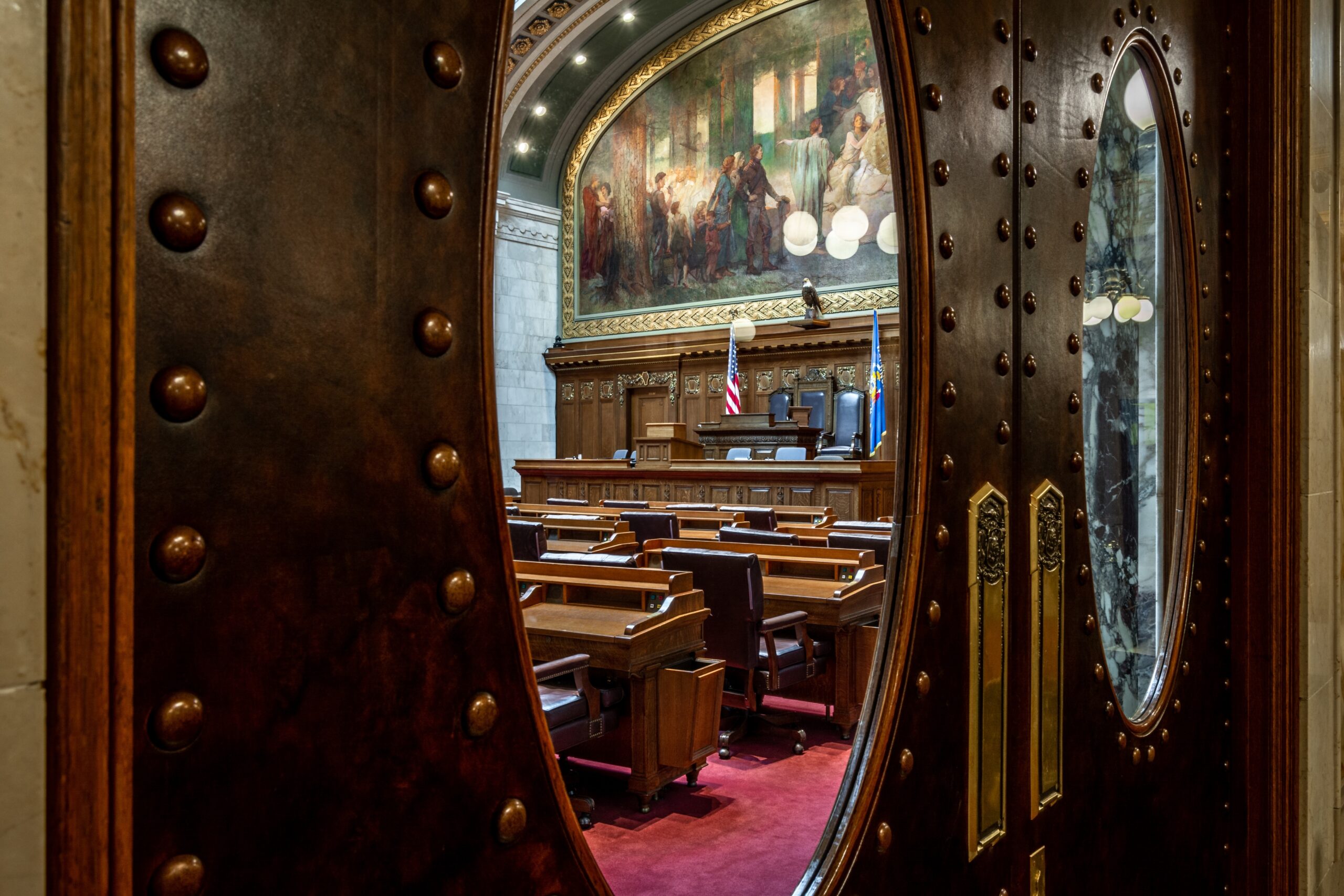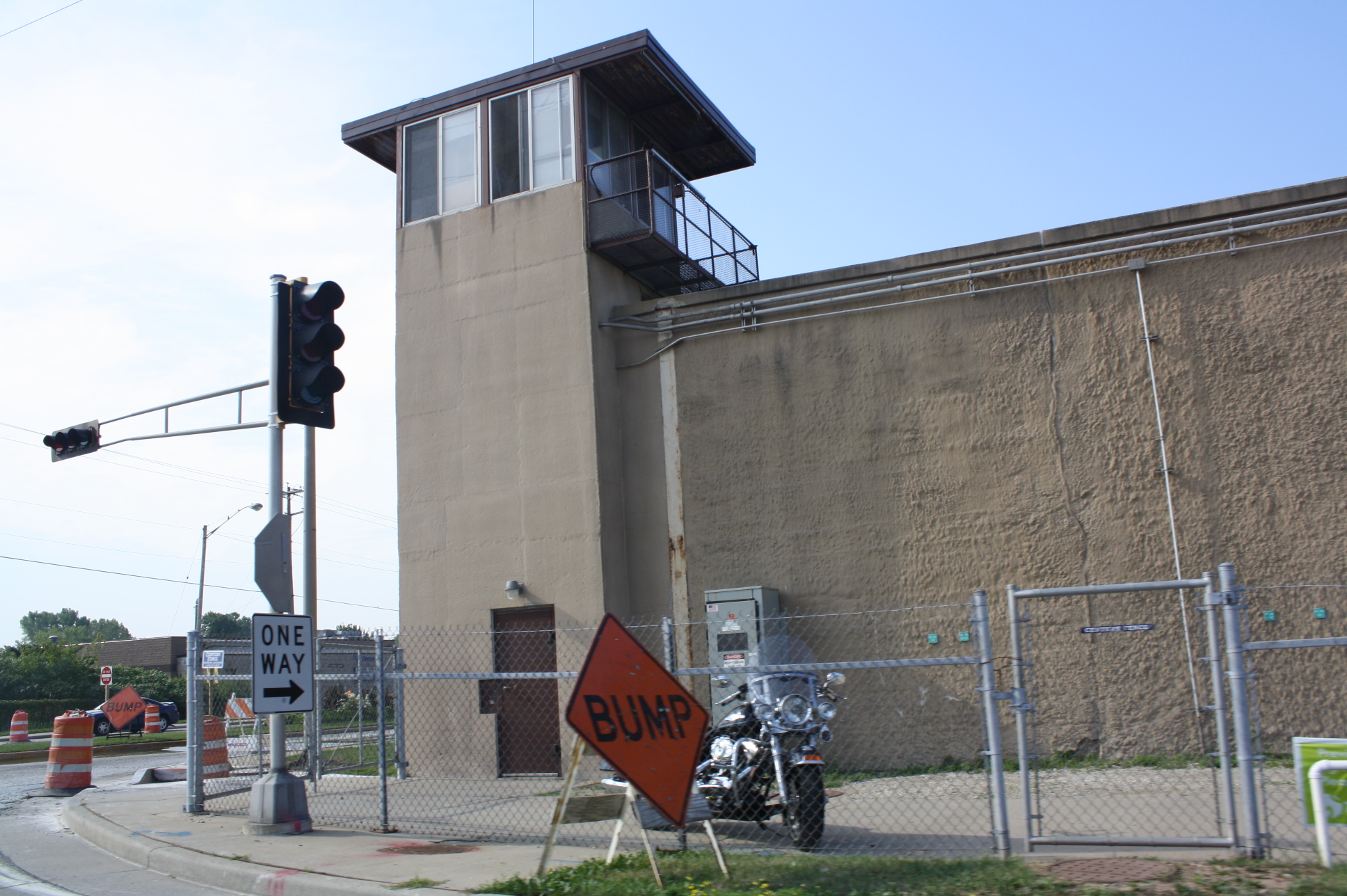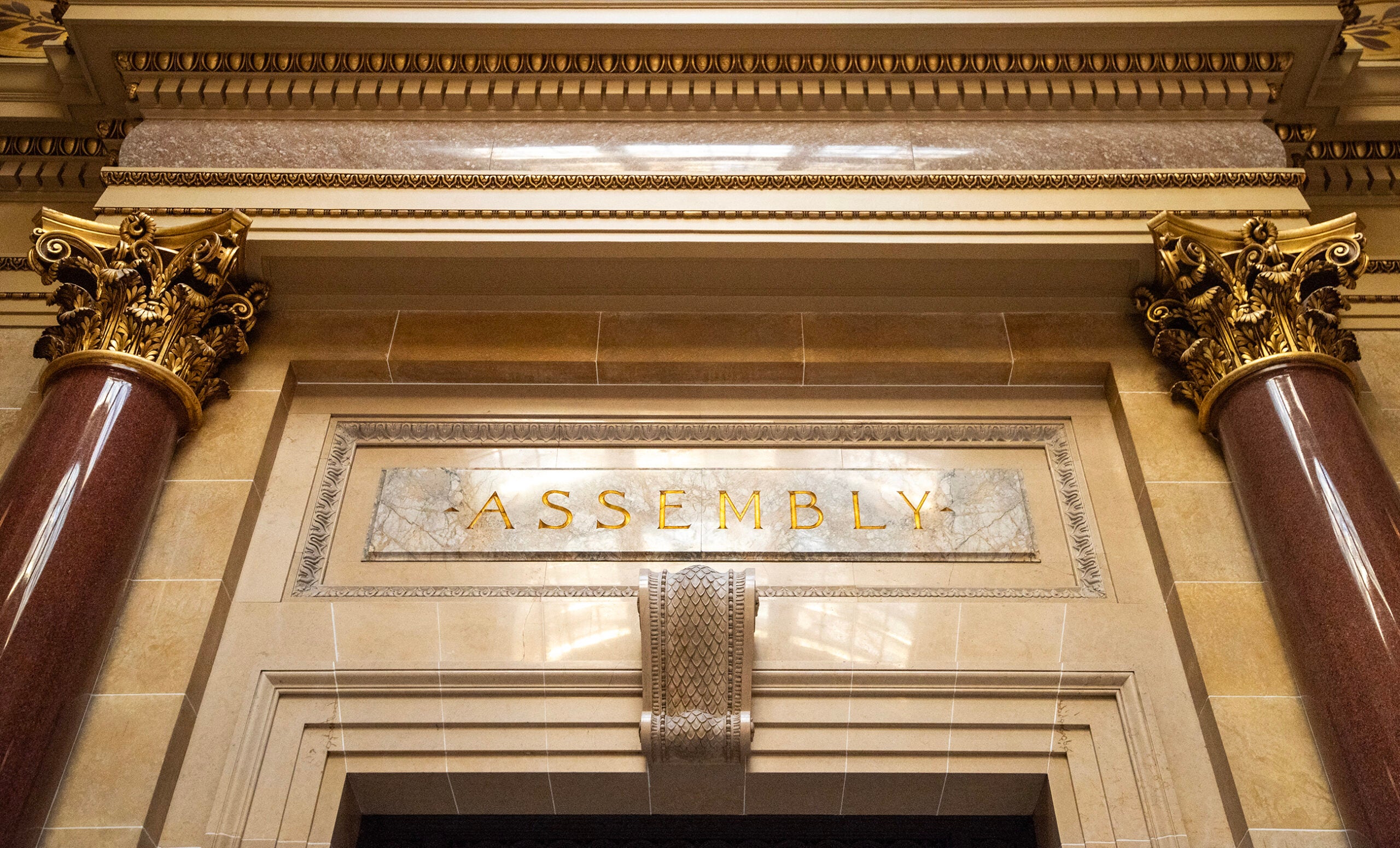State Assembly lawmakers voted Tuesday to approve a $10 million plan to address Wisconsin’s ongoing struggles with water quality.
The 13 proposals are the result of a bipartisan legislative task force that held hearings across the state last year.
Wisconsin’s challenges with water quality range from so-called “forever chemical” contamination in wells to groundwater pollution caused by livestock manure and wells contaminated with human and animal waste.
News with a little more humanity
WPR’s “Wisconsin Today” newsletter keeps you connected to the state you love without feeling overwhelmed. No paywall. No agenda. No corporate filter.
“Clean water is not a Democrat or Republican issue, it’s a state of Wisconsin issue,” said state Rep. Todd Novak, R-Dodgeville, who chaired the water quality task force, before Tuesday’s vote.
One of the proposals from the task force would create a new Office of Water Policy within the Wisconsin Geological and Natural History Survey, a part of the University of Wisconsin-Extension. The office would be tasked with “coordinating efforts to manage, conserve, protect, and enhance the productivity of the state’s water resources,” according to the task force’s official report.
Another bill would increase funding for county conservation staff, who work on projects to prevent soil erosion and runoff into water supplies. A third plan would increase funding for a state grant program that helps people replace or treat contaminated wells on their property.
Other bills in the package would:
- Create a $1 million “nitrogen optimization pilot program” that would give grants to farmers and universities to work on projects that reduce the amount of manure used when growing crops.
- Require the UW System Board of Regents to create a three-year project position for a hydrogeologist within the Wisconsin Geological and Natural History Survey.
- Create a grant program for county groundwater and well testing, as well as assessments of water quality, geology and well construction.
- Require local governments to inform their residents of the importance of regular well testing.
- Require the state agriculture department to coordinate with the state Department of Natural Resources on a program to collect and store or dispose of firefighting foam that contains PFAS, so-called “forever chemicals” that have seeped into some Wisconsin groundwater and are known to cause health problems.
- Bar the sale of coal tar-based sealant products, which are used to maintain and protect driveway and parking lot asphalt pavement, and high PAH sealant products, which have been linked to health problems, beginning Jan. 1.
Ten of the 13 bills passed with unanimous support.
Two other bills split along party lines, with Republicans voting in favor and Democrats against. Those plans would change public notice and comment periods for certain groundwater standards and fund grants for projects that study and change fish populations in lakes. Of the comment periods, Democrats argued the changes would give business groups too much power. Of the grant projects, they said the DNR could fund the projects with existing funds.
The final bill in the package passed on a vote of 60-37, with Rep. Joel Kitchens, R-Sturgeon Bay, joining Democrats in voting against the plan. The proposal would change how the state handles municipal flood-control grants. Democrats argued it would make it more difficult for some communities to get state money after experiencing flooding. The DNR testified against the bill, saying it “deprioritizes public health and safety.”
The proposals have yet to be voted on in the state Senate.
RELATED: Lawmakers Unveil $10M Plan To Clean Up Water In Wisconsin
Proposal Aims To Lower Prescription Drug Prices
Lawmakers voted on Tuesday to approve a bipartisan bill aimed at lowering prescription drug costs in Wisconsin. The measure passed with a unanimous vote of 96-0.
Under the plan, pharmacists would be allowed to tell customers about cheaper prescription drug options, including paying cash if that would be cheaper than their insurance co-payment. Pharmacists are currently banned from doing so by a gag rule imposed by pharmacy benefit managers (PBMs).
The bill would also regulate PBMs under the state Office of the Commissioner of Insurance and allow fewer cases in which PBMs could deny a claim. PBMs would still be allowed to change their list of approved drugs, but would have to provide customers and insurers 30 days notice.
“There is not a silver bullet for this problem, there’s certainly an effort that has to be done in Washington, but there are things states can do,” Assembly Speaker Robin Vos, R-Rochester, said Tuesday before the vote.
According to the National Academy for State Health Policy, 114 bills regulating PBMs are working their way through legislatures across the country.
The bipartisan bill is sponsored by Rep. Michael Schraa, R-Oshkosh, and Sen. Jon Erpenbach, D-West Point. It has the support of a number of health groups, including the Wisconsin Medical Society and Pharmacy Society of Wisconsin, but is opposed by a number of major insurers and the powerful business lobbying group, Wisconsin Manufacturers and Commerce.
The plan has yet to be voted on in the state Senate.
Bill Would Fund Mental Health Facility Expansion In Eau Claire County
Another plan approved Tuesday would direct $15 million in state funds toward an expansion of a mental health care facility in Eau Claire County. The plan passed on a vote of 97-0.
The move comes after a prolonged clash between Gov. Tony Evers and GOP lawmakers about funding mental health centers in Wisconsin. Evers used his veto pen to specify a Madison-based facility would get $15 million in the state budget, rather than a proposed facility in northern Wisconsin.
The Assembly unsuccessfully attempted to override the governor’s veto in November.
In his veto message, Evers said redirecting the funds to Madison would “ensure that the state is able to provide appropriate mental health treatment for youth.”
The plan has not been voted on in the Senate. If approved, the funding would also need approval from the state Building Commission to move forward.
Resolution Supports Amending US Constitution
Assembly lawmakers also passed a proposed resolution that would call for a constitutional convention, a gathering of states intended to amend the U.S. Constitution. In particular, the resolution decrees the convention should take up amendments “restraining abuses of power by the federal government.”
The resolution passed on a vote of 60-38. Rep. Amy Loudenbeck, R-Clinton, and Rep. David Murphy, R-Greenville, joined Democrats in voting against the proposal.
According to the resolution’s authors, those amendments would do three things: impose fiscal restraints on the federal government, limit the power and jurisdiction of the federal government, and limit the terms of office for officials and members of Congress.
Vos told reporters Tuesday while he doesn’t personally support term limits, he’s “not afraid of a constitutional convention where (states) come together and talk about those topics.”
During debate, Rep. Barbara Dittrich, R-Oconomowoc, argued in favor of term limits.
“Just like laundry, we get stinky when we sit around too long in our jobs,” Dittrich said.
Democrats argued delegates could take up whatever proposals they wanted to at a constitutional convention. That possibility is sometimes called a “runaway convention.” Some opponents also argued that reining in national debt could hurt the country’s ability to respond to economic downturns or military conflicts.
The resolution has yet to be voted on in the Senate.
The Assembly is also scheduled to meet Thursday, which is expected to be its last day of work in 2020.
Editor’s note: This story was updated to clarify the language in the Eau Claire County mental health funding proposal.
Wisconsin Public Radio, © Copyright 2025, Board of Regents of the University of Wisconsin System and Wisconsin Educational Communications Board.







